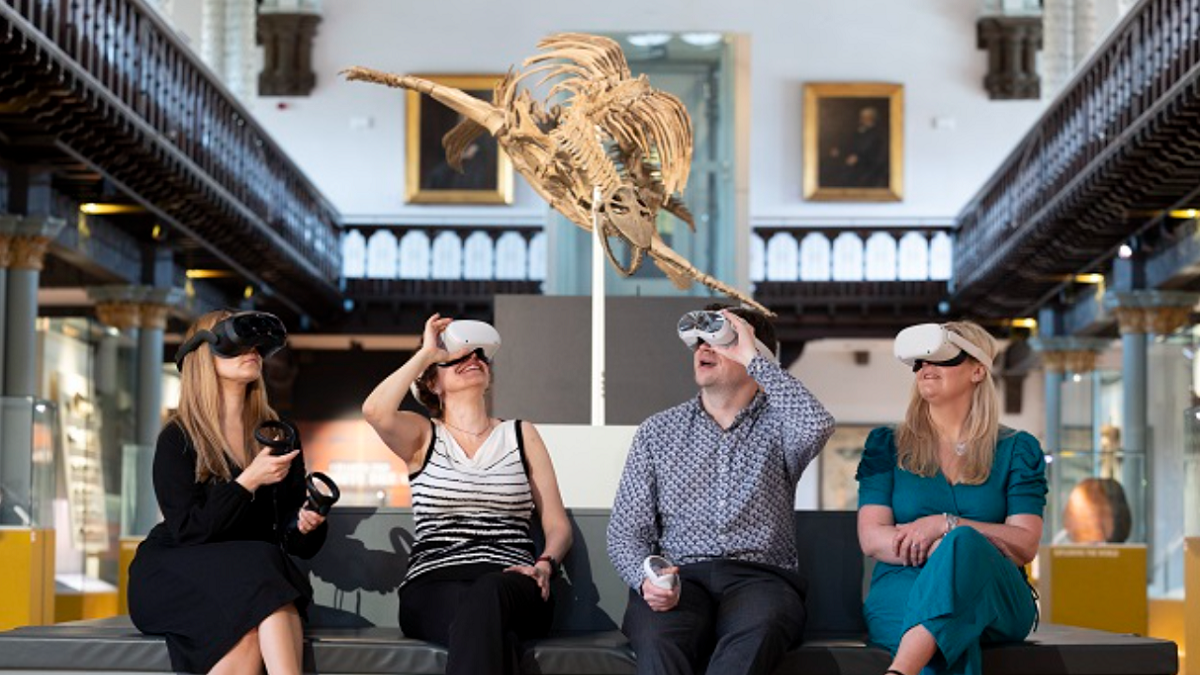The UK Government’s Innovation Accelerator program is providing £5.6 million in funding for the new Museums in the Metaverse project. Innovate UK is leading the project and aims to offer metaverse users online access to a variety of museums, sites and experiences. Additionally, the Museums in the Metaverse project will enable virtual museum curators to create new stories by utilising objects and environments that have never been placed together in the physical world.
The University of Glasgow will work with immersive learning platform Edify, Historic Environment Scotland and National Museums Scotland to create authentic and immersive virtual museum experiences. Through the project, online visitors will gain access to cultural exhibits and assets and allow curators to build new content. University of Glasgow’s Professor Neil McDonnell, who is leading the Museums in the Metaverse project, doesn’t believe virtual museums will replace physical ones. Instead, he and his team hope to enhance traditional museums through XR.
“Virtual Reality Museums offer transformative extensions to the traditional museum experience: they can host collections of any size, show distant objects side-by-side, and be accessed from anywhere in the world,” says Professor McDonnell. “Their potential is extraordinary. However, there are several challenges – economic, technological, and cultural – which have so far limited universal use, including the expense of producing a bespoke VR experience as well as lack of technical skills to digitise collections and assets in 3D.”
A chance to see many objects in museum storage
According to McDonnell, 90 per cent of items in museum collections are in storage and thus unavailable to the public. McDonnel also believes the museums in the metaverse project will allow those who live far from or cannot visit physical museums to experience exciting collections. Additionally, the project will enable anyone to create their own virtual museums and share their stories using objects from around the globe.
The University of Glasgow was chosen to undertake the project due to its reputation for museum studies, digital cultural heritage and digital humanities. The university’s museum, The Hunterian, is host to various nationally significant collections.
“This project will enable researchers around the world to remotely access and engage with cultural heritage collections that cover a wide range of disciplines,” says Maria Economou, Professor of Digital Cultural Heritage at The Hunterian. “The access to state-of-the-art photogrammetry equipment will be invaluable for long-term development of The Hunterian’s digital capacity and resources for our increasing range of audiences.”
Jack Brassell is a freelance journalist and aspiring novelist. Jack is a self-proclaimed nerd with a lifelong passion for storytelling. As an author, Jack writes mostly horror and young adult fantasy. Also an avid gamer, she works as the lead news editor at Hardcore Droid. When she isn't writing or playing games, she can often be found binge-watching Parks & Rec or The Office, proudly considering herself to be a cross between Leslie Knope and Pam Beasley.



































